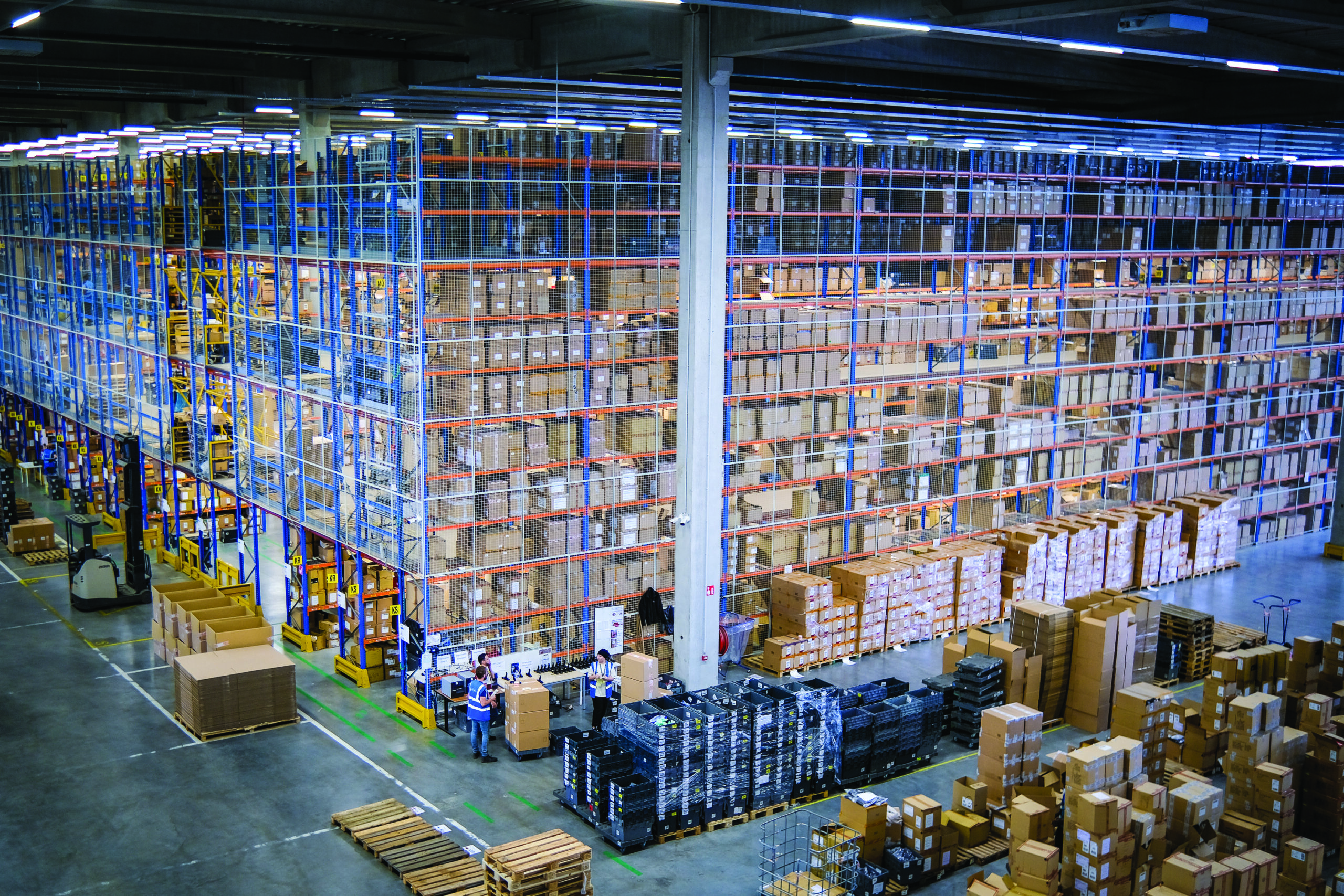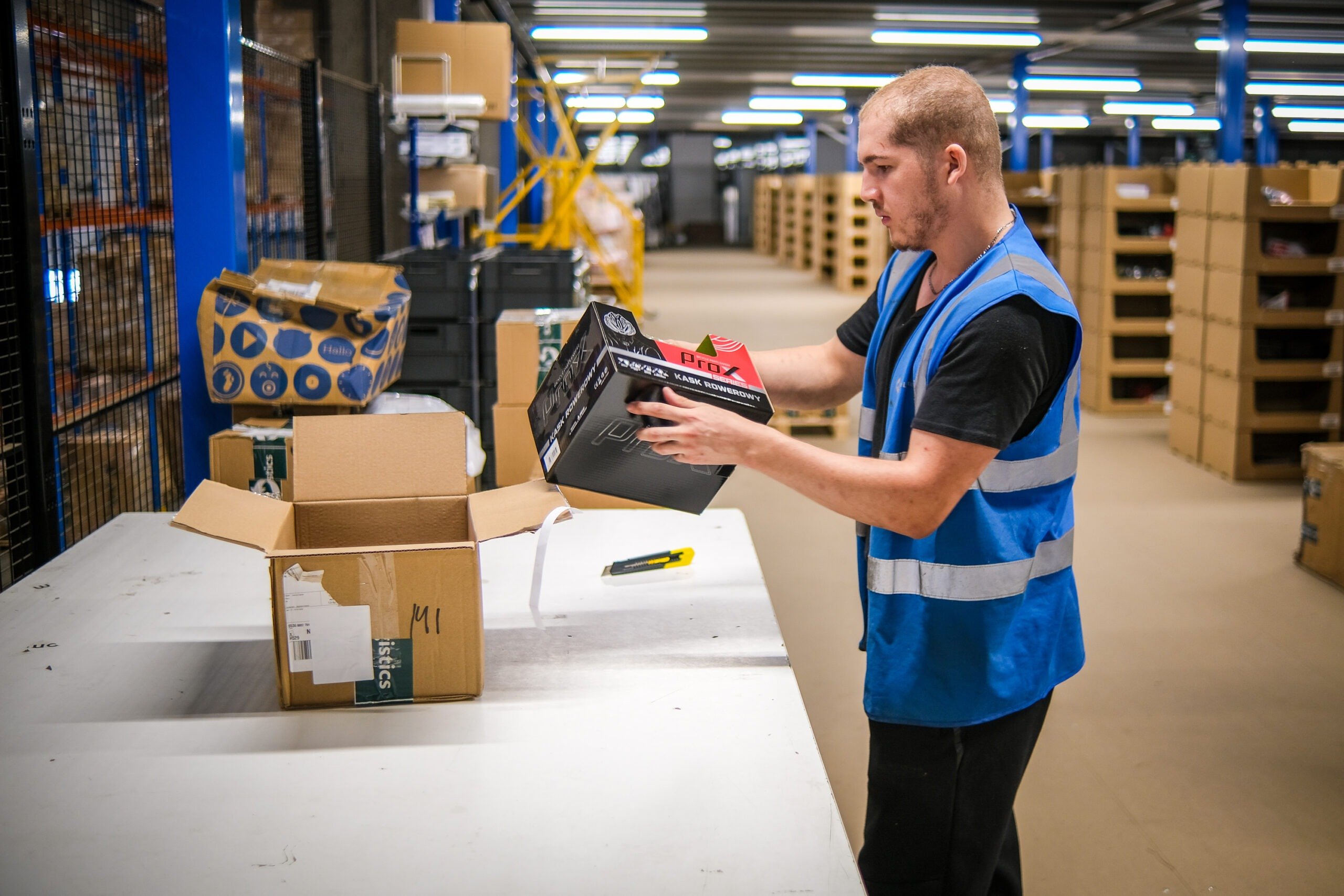A bonded warehouse is a warehouse that companies use to store goods from abroad without having to pay the associated taxes immediately. The taxes are only collected once the final destination is determined and the goods leave.
In this article, we explain what a bonded warehouse is and which benefits you have when you use a bonded warehouse.
What is a bonded warehouse?
The most commonly used definition of a bonded warehouse is a warehouse for holding goods from abroad under the supervision of customs authorities. During the time the products are in the warehouse, the warehousing company is exempt from paying taxes and duties. It has to pay these only when the goods are finally sent to their final destination.
Importers handling non-perishable goods with a high value and a low to medium turnover rate, for example, often use bonded warehouses because it allows them to defer payment of duties until the final shipment of the goods to their final destination.
Bonded warehouses are also often used by international trading companies (trading companies that want to hold stocks in one area in order to export them elsewhere and also market them in the same country). This is e.g. the case of a company that stores products from the United States in Belgium and then ships them from Belgium to other European countries.
What are the benefits of a bonded warehouse?
One of the main advantages is not having to pay taxes and duties until the goods have left the warehouse. This means that payment can be made at the same time as the actual sale, so the company does not have to advance taxes.
Another advantage is that the goods can legally remain in storage indefinitely (with the exception, of course, of perishable products with an expiry date). So does this mean that the company that owns the products has no access to them during storage? Not at all. Although the goods are under supervision, the owner has access to them to perform certain operations, such as embellishing the goods or transferring them to another bonded warehouse.
It is also possible to take custody of only part of the goods. This allows products to be distributed gradually, depending on demand. The corresponding taxes are paid when the goods leave the warehouse and are proportional to the number of products released. This ensures that as soon as the taxes have to be paid, there is also income in return because the products are also sold/generating revenue.
Using a bonded warehouse also offers advantages in terms of speed of delivery. When selling, import companies ship a product directly from the country of sale as they have stock there. This reduces delivery times. And this without having to have a warehouse in the country of sale yourself as a supplier. Win-win!
Two types of bonded warehouses
There are two types of bonded warehouses:
- Privately bonded warehouses: these are used only for the authorised person or company. Only goods related to their activity are stored there.
- Public bonded warehouses: these are available to private companies or the government. All companies can use them. Widem Logistics has the necessary permits to manage public bonded warehouses.
Regardless of the type of bonded warehouse, its function is always the same: storing goods indefinitely until they receive a customs destination.
In short, a bonded warehouse is a warehouse for storing products from abroad that is used by various companies from all kinds of sectors that import products or distribute their goods in other countries. The main advantage is obvious: taxes are paid only after the goods are shipped.



